How much should you invest in Search Engine Optimization (SEO) or Search Engine Marketing (SEM) for your hotel to increase your sales by 5%? If you have a limited budget, what is the smartest way to use it? Can Conversion Rate Optimization (CRO) be a better solution? In this article you will learn the meaning of SEO and CRO, and what you should focus on.
How To Best Spend Your Limited Resources
Today, available resources are limited, government regulations are tighter and competition for guests is fiercer than ever. Knowing what the advantages of SEO versus CRO are, is being smart for every hotel. Below we will explain the definitions of SEO, SEM and CRO, and explain what to focus on.
Definitions of SEO, SEM and CRO
SEO has been around for two decades since the very first search engines were introduced. It has come a long way from optimizing titles, content and URLs to a complex almost scientific approach. SEO is the process of improving hotel’s website visibility in the organic results of different search engines. In spite of the fact that SEO works with organic and free traffic, SEO itself is not free. Getting results requires time, effort, and budget. Secondly, SEM refers to the techniques that improve positioning with paid tools, for example Google Ads for specific keywords.
The goal of both SEO and SEM is to ensure your website is as well-ranked as possible. The better your rating is, the more visitors your website will get. Therefore, the ultimate goal of SEO and SEM is to increase traffic in order to gain more website visitors.
Even though SEO and SEM are not the same, the difference between them is subtle. Some SEM techniques will be used for SEO, and vice versa. SEM includes various components, while the term SEO is more colloquial and used much more often. In the article below SEO is interchangeably used for SEM, off-site and on-site SEO, pay-per-click, and other activities that improve your hotel website positioning.
The third term is CRO, this is focused on improving the percentage of people that fulfill an action (or ‘convert’) on your website. The ultimate goal is to have more direct bookings on a hotel website. The term Conversion Marketing can be used, but it is used much less when speaking.
When looking at SEO vs CRO, the success formula for a hotel is as follows:
This sounds easy, but in reality major players, such as OTAs, invest a lot of budget in SEO to be listed in the top positions in search engines. Unsurprisingly, conversion leaders are, therefore, OTAs. The conversion monster Booking.com masters conversion by testing, testing, and re-testing new features, and it improves constantly. Obviously, hotels should pay extra caution not to blow their marketing budgets, competing with OTAs’ enormous budgets
So What Should You Focus On?
The bad news is that you should not choose between these two strategies. SEO is as important as CRO. The good news is, by balancing both, you can get mutually reinforcing results. Therefore, the better question could be: How can you get more direct bookings with less investment?
It is recommended to start with conversion rate optimization as they have a higher return on investment. Below you will see 5 tips to improve your conversions.
ROI from CRO is much higher than from SEO:
1) Make a Conversion Optimization Plan
Conversion rate optimization does not require constant investments. A conversion audit can help you to create a conversion optimization plan, that includes: Improved UX/UI, web design, engaging copywriting, fixed programming problems and other techniques. CRO requires initial investments but will be working for a conversion rate constantly. Thus each new direct booking from CRO comes with zero increase for marketing investments.
To top up the conversion optimization minimum, a hotel can use additional paid CRO tools, such as rate comparison, cart recovery, page abandonment widgets, email remarketing, personalized messages, live chats, and a call back button.
2) Invest in SEO and CRO
Investment in SEO is constantly growing. Lewis Caroll in “Alice in Wonderland” describes this idea perfectly: “It takes all the running you can do, to keep in the same place”. In case of SEO, hotels compete with each other and other global market players, while search engines make use and money from it. It doesn’t matter which model you prefer. Both CPC (cost per click, pay per click) or CPA (cost per acquisition) will increase month to month. Without paid SEO your hotel website could not compete with competitors.
On the other hand, investments in CRO are typically single installment for conversion audit and bug fixing/page improvements work. Paid CRO includes a low-cost flat fee model. Both are easy to budget and control. What is even more important, when improving website conversion, the hotel is not competing with other players, so all changes make your website better.
3) Consider Using a Tool For CRO
SEO is expensive. This implies that with the same amount spent on SEO and CRO your revenue growth will be different. Let’s look at an example:
Average ADR (Average Daily Rate) for a hotel in New York is around 299$ with average LOS (Length of Stay) equals to 1.8 days. That gives us ABV (Average Booking Value) of 538$. The average hotel website has around 3000 visitors monthly and with an average conversion rate of 2%.
You can use a tool, as offered by 123COMPARE.ME. Such a tool includes a set of CRO gears: rate comparison, cart recovery, email remarketing, price matching, OTA control, OTA disparity alerts, live chat and call back button, passbook wallet, conversion audit, metasearch surveillance, website acceleration.
Let’s say the tool costs 269$ per month. On average, clients get an increase of conversion by 35%. That allows to calculate what additional revenue the investment of 269$ will give to the hotel:
This is just an example. You can easily calculate ROI for your hotel, adding ADR, LOS, number of website visitors, and the current conversion rate.
4) Make the Best Use of Visitors
With good CRO, future investments in SEO (as well in pay Google Adwords or even social media) will be more profitable. It is important to make sure that your website squeezes conversion out of existing visitors in the first place. Therefore, newly generated traffic by SEO will result in higher revenue.
5) Have Patience!
CRO gives results faster. With only 1000 visitors per page, you can see the results of conversion optimization in a month. For SEO the picture is different. Depending on the keywords you are competing for, improvements in organic ranking and an increase in traffic typically take months, while highly competitive phrases could even take one year or more!
Return of investments from conversion rate optimization (CRO) is higher than from search engine optimization (SEO) and will grow long after website conversion optimization is done. SEO is absolutely vital for a hotel’s digital strategy, nevertheless, CRO is something to start with. CRO gives a better return on investment and should be always complimented with SEO.
More Tips to Grow Your Business
Revfine.com is the leading knowledge platform for the hospitality and travel industry. Professionals use our insights, strategies, and actionable tips to get inspired, optimize revenue, innovate processes, and improve customer experience.Explore expert advice on management, marketing, revenue management, operations, software, and technology in our dedicated Hotel, Hospitality, and Travel & Tourism categories.

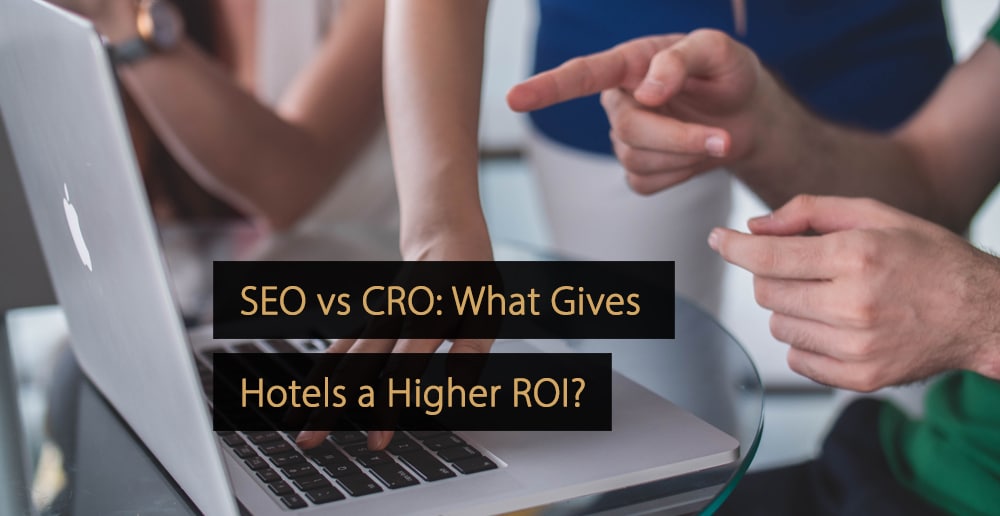
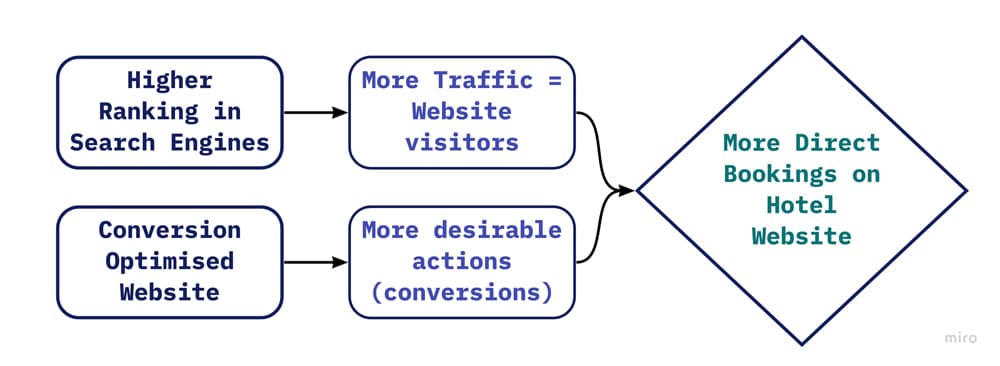
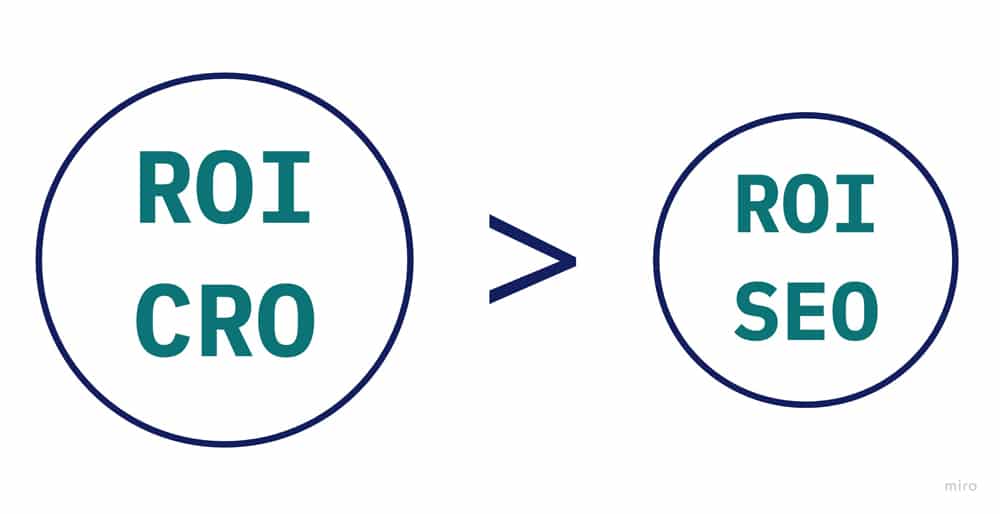
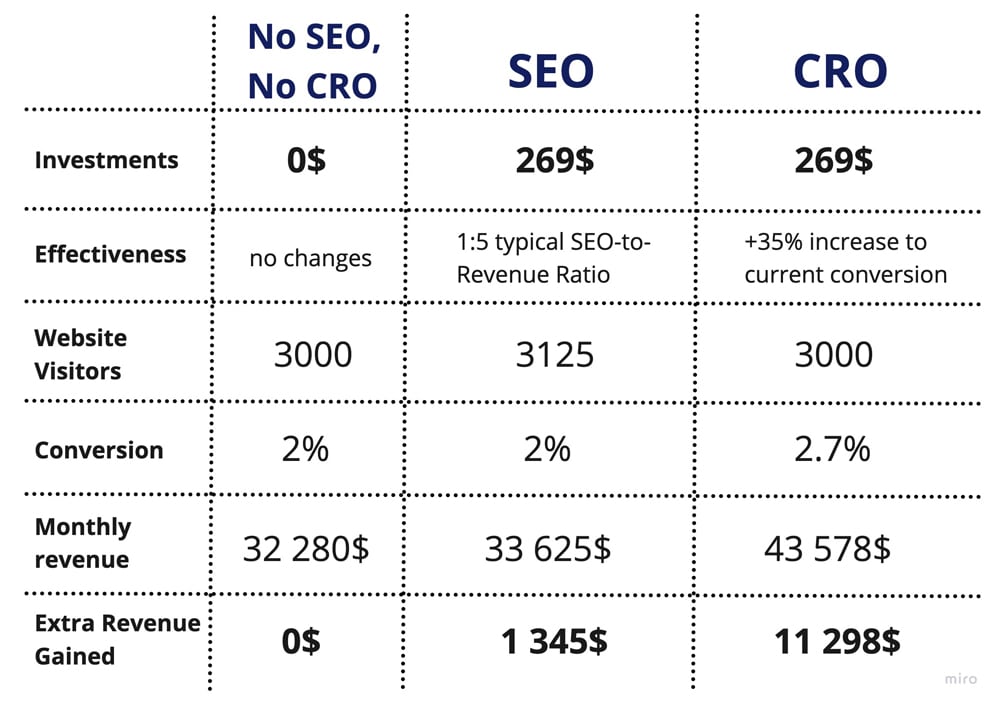

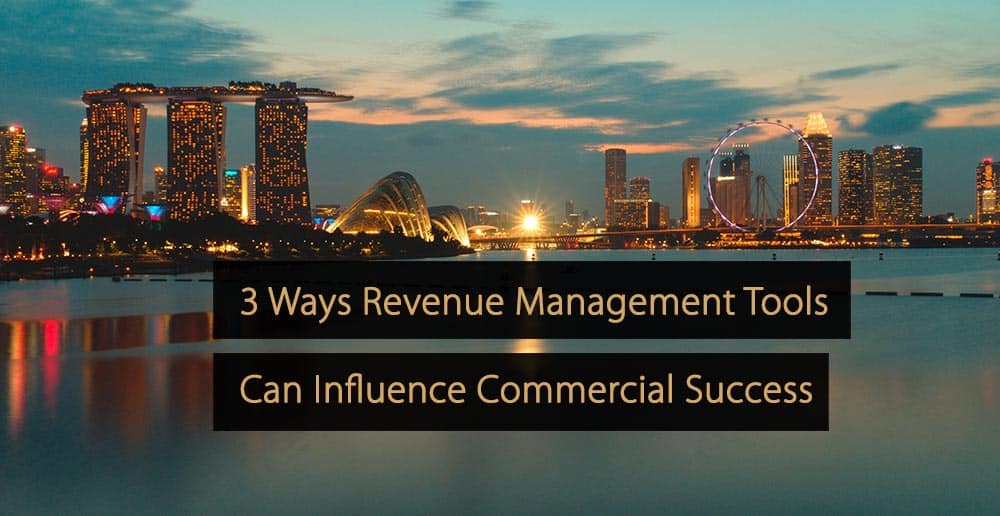
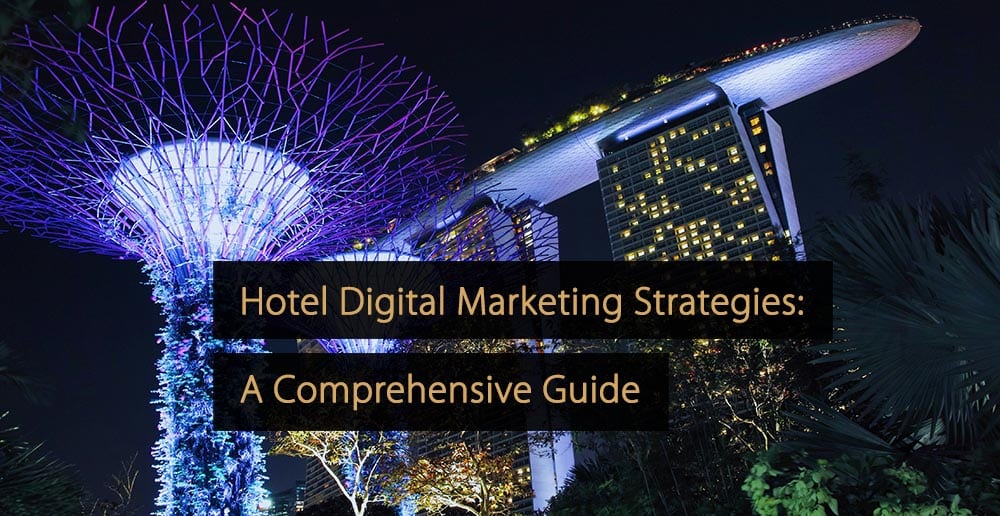

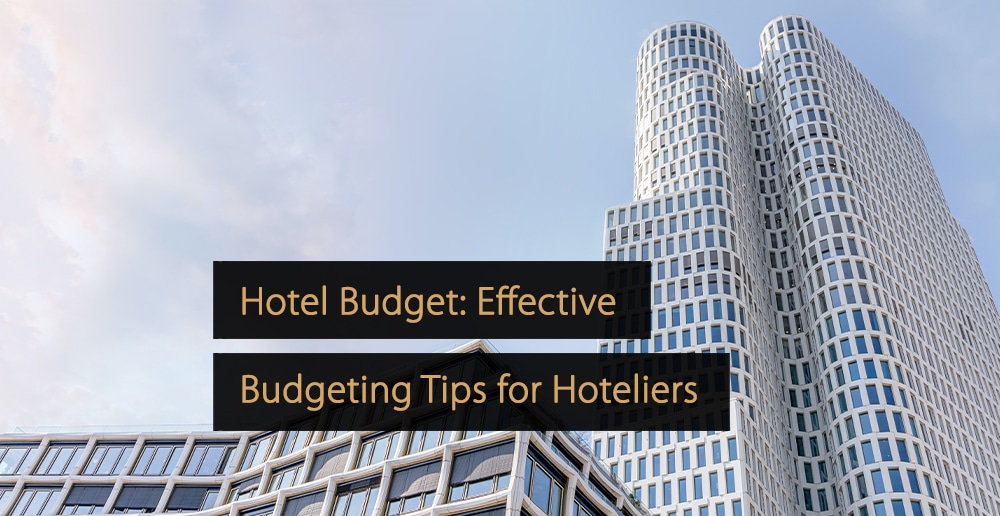
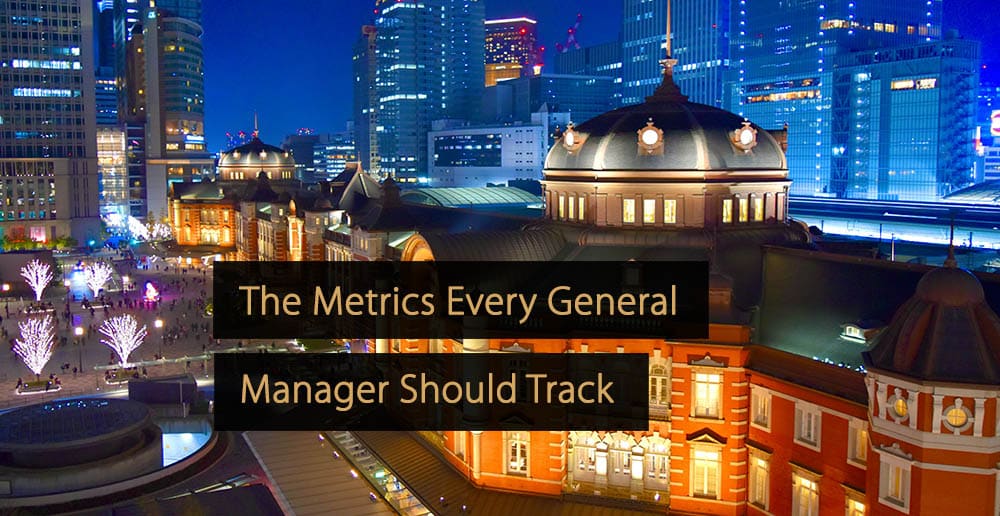
Thank you for explaining the difference between SEO and CRO for hotels. It is really informative.
Very interesting article. Fun fact, Google site statistics show that its AI tech is helping Google improve exponentially. Back in 1999, it took Google at least a month minimum to index around 50 mil pages. In 2012, the same quantity of data could be analyzed in less than 60 seconds. Just leave any human feeling a little inadequate.